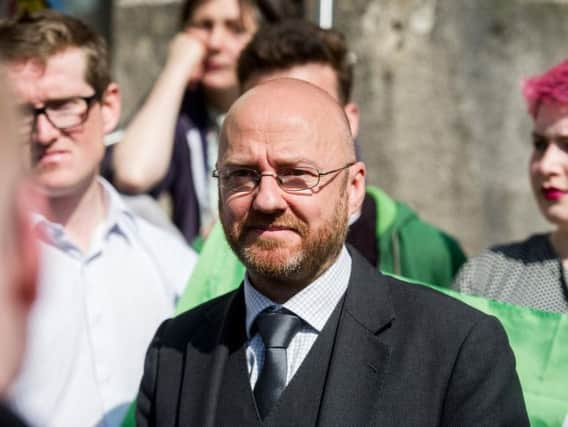Delay in law change allows trans people to be viewed as ‘threat’, says MSP


Raising the issue in Holyrood today he said there was an "impatience" for the legislation to be introduced and asked why the government had not yet legislated to bring "gender recognition law up to international best practice".
Mr Harvie said that all of Scotland's five political parties in the Parliament had "committed to advance" the legislation at the 2016 elections, with every political party leader giving "a clear personal commitment to see this legislation brought forward."
Advertisement
Hide AdAdvertisement
Hide AdAddressing Cabinet Secretary for Equalities, Shirley-Anne Somerville, he said: "Does the Cabinet Secretary recognise that the delay that we've seen since the consultation has also seen the development of a much more coherent campaign against trans rights and equality, including by those who seek to portray trans people as a threat in a way which is reminiscent of campaigns against lesbian, gay and bisexual equality?"
The changes to the gender recognition law would see trans people able to "self-declare" their gender rather than having to receive a medical diagnosis of dysphoria.
Ms Somerville refused to be drawn on a legislative timetable but said the Scottish Govt was "strongly committed to maintaining and advancing trans rights and equality" and that the majority of the 15,500 responses to the consultation on changing the law supported the proposals "but some expressed sincerely held concerns about reform".
She added: "I appreciate there are stakeholder groups and individuals across Scotland looking to this Parliament to ensure that there is change. There is absolutely an imperative on all of us to ensure that this debate is carried out in the right manner and its done with respect and its done with recognising different opinions but ensuring that we do so on the foundation of trans inclusivity and of ensuring that trans righs are respected along with other rights in our community.
"Trans people are not a threat, they never have been, they never will be, but it's important that we listen to people who have concerns to reassure them to and to work through them and that is why I am ensuring I go through a process of due diligence to look at the consultation responses to understand the concerns out there, to work with people to find solutions and I would put out to everybody in this chamber and beyond - if we are committed to ensuring that everyone in Scotland is represented and has a place in our society we all have an obligation to come forward with solutions about how we do that in a respectful manner."
However her SNP colleague Joan McAlpine said that one of the groups "most concerned about the proposed changes to the gender recognition law, were lesbians.
And she added: "There was nothing in the SNP 2016 manifesto that said that males with male bodies, including male genitals, should be able to declare themselves female without any medical or psychological assessment or safeguarding
"Trans people are not a threat - it is men are a threat as men commit 97 per cent of sexual crimes. What evidence does the government have that males who self declare themselves as female no longer offend at male rates?"
Advertisement
Hide AdAdvertisement
Hide AdMs Somerville said: "There is a perceived threat from men who will use the debate around trans rights and that's important to recognise. We tackle the fear that women have of men and ensure that we deal with that, and also ensure that we develop trans rights in a respectful manner."
She added: ""What the government is proposing is something which would be a solemn declaration, made in front of a notary public that would have very,very serious consequences if ever broken. It's very, very important we ensure that when we're talking about self declaration it is done... in this way with criminal offences available to be charged if someone abuses that system,
"If we can ensure that what we bring forward recognises those concerns, but also ensures that we're delivering a system that is fit for purpose with what is going on in the international community, we can move Scotland a long way forward in what is a very difficult subject for many of us to find a solution to."